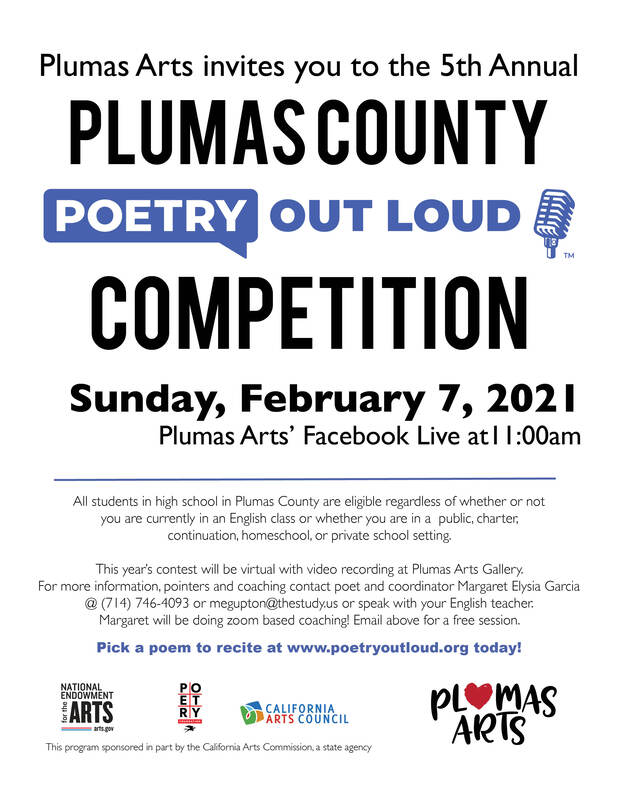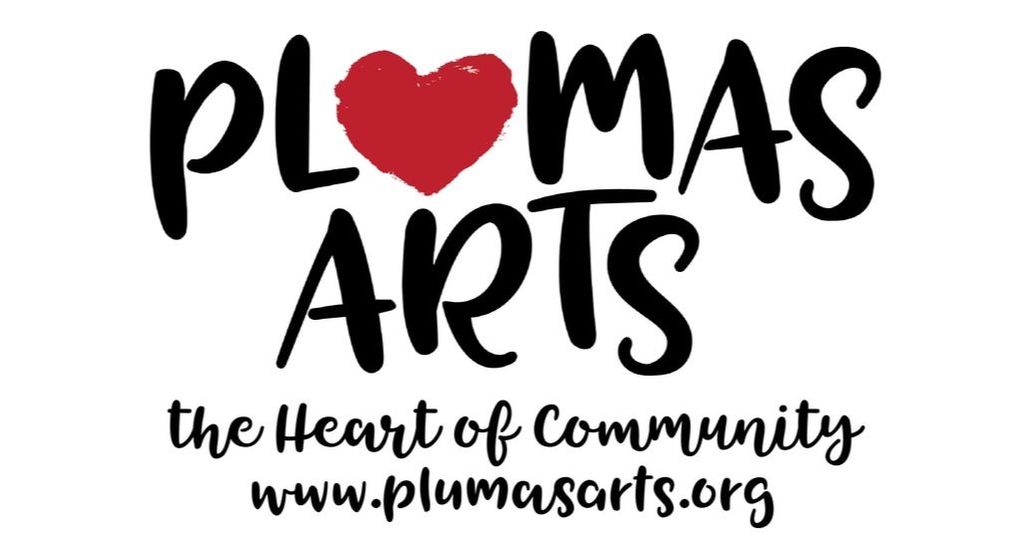
About the Poetry Out Loud Competition
Started by the National Endowment for the Arts and the Poetry Foundation, Poetry Out Loud encourages students to learn about great poetry through memorization and recitation. This program helps students master public speaking skills, build self-confidence, and learn about literary history and contemporary life.
Following a pyramid structure, classroom winners advance to a school-wide competition. Each school’s champion competes at the district or county level by mid-February, and county winners will compete at California Poetry Out Loud State Finals on March 11, 2021. The State Finals competition previously held in the historic Senate Chamber (legislative calendar permitting), will be held virtually this year.
At the state level, one winner will be selected to represent California in the national competition.
For more information, pointers, and coaching contact poet and coordinator
Margaret Elysia Garcia at (714) 746-4093 or [email protected]
Student Eligibility
Poem Eligibility
Learn more about Poetry Out Loud on their website www.poetryoutloud.org
Started by the National Endowment for the Arts and the Poetry Foundation, Poetry Out Loud encourages students to learn about great poetry through memorization and recitation. This program helps students master public speaking skills, build self-confidence, and learn about literary history and contemporary life.
Following a pyramid structure, classroom winners advance to a school-wide competition. Each school’s champion competes at the district or county level by mid-February, and county winners will compete at California Poetry Out Loud State Finals on March 11, 2021. The State Finals competition previously held in the historic Senate Chamber (legislative calendar permitting), will be held virtually this year.
At the state level, one winner will be selected to represent California in the national competition.
For more information, pointers, and coaching contact poet and coordinator
Margaret Elysia Garcia at (714) 746-4093 or [email protected]
Student Eligibility
- Grade Level: Only currently enrolled students in grades 9-12 are eligible, with an exception made for 8th-grade students participating in a 9th- through 12th-grade class.
- State Finals: A student may not advance to the state finals without competing in a lower-level competition.
- Legal Participation Requirements: No student may be excluded from participating in Poetry Out Loud on the basis of race, color, religion, sex, sexual orientation, disability, or national origin. Schools may determine eligibility for classroom and school level Poetry Out Loud programming pursuant to local and state law.
- Prize Requirements: The Poetry Foundation provides and administers all aspects of the monetary prizes awarded in Poetry Out Loud. State champions and runners up will need a valid tax identification number or social security number at the time that monetary prizes are issued by the Poetry Foundation. Prizes are not transferable.
- Homeschooled Students: Homeschooled students may participate by competing in a contest at a local school (at the school’s discretion) or with other local homeschooled students. Contact your state coordinator for specific guidelines.
- School Not Participating? Students unable to participate at a local school should contact their state Poetry Out Loud coordinator to discuss other opportunities for inclusion in the state’s official competition.
- Repeat Champions: Only National Champions are not eligible to compete in subsequent years.
- Relatives: Avoiding any potential conflicts of interest (or the appearance of conflicts of interest) helps to preserve the integrity of the contest and make it fair for all students. Relatives* of national organizers (National Endowment for the Arts and the Poetry Foundation) may compete in school, local, regional, and state competitions, but would not be able to advance to National Finals. Relatives* of State Art Agency Coordinators or affiliated contractors and sponsors may not compete past the school level in that particular state.
Poem Eligibility
- Poem Anthology: All poems must be selected from the Poetry Out Loud print or online anthology, which is updated every summer. Check the website after September 1, 2020, to view the official POL anthology for the current school year. Only versions of poems from the official anthology may be used in the contest.
- Can’t Find a Poem? Poems may be removed from the online anthology before September 1, 2020. These poems are no longer eligible for competition, unless they are in the print anthology. However, any poem in the printed anthology is eligible even if it is not online.
- Poem Criteria: At the state and national finals, students must have 3 poems prepared. One must be 25 lines or fewer, and one must be written before the 20th century. One poem may be used to meet both criteria, and may be the student’s third poem.
- Contest Participants: Poetry Out Loud competitions must have at least two students to select a winner. If the winner is unable to attend the next level of competition, the runner-up should be sent.
- Evaluation: Students must be judged according to the Poetry Out Loud evaluation criteria from the 2020-2021 Teacher’s Guide.
- Rounds: State and national finals consist of three rounds of competition. Competitions at lower levels may have fewer rounds, but students must recite only one poem in each round.
- Poem Order: The order in which the poems are recited is up to the student, but poem order may not be switched once given to the competition organizer. Competition organizers may not dictate poem order.
- Judging: Rankings are based solely on evaluation sheets submitted by judges. Judges should not convene to discuss performances during the competition. Judges may not reconsider their scores after they are submitted. Judges’ decisions are final.
- Scoring: Scoring is cumulative. The scores from all rounds should be added together to determine the winner.
- Ties: In the event of a tie, the tied student with the highest overall performance score should win; if that also results in a tie, look to the highest accuracy score. If scores remain tied, consider having students pick one poem to recite again as a separate score to break the tie.
- Memorization: Students must recite their poem from memory.
- Props: Students may not use props or wear costumes during their recitations.
Learn more about Poetry Out Loud on their website www.poetryoutloud.org





